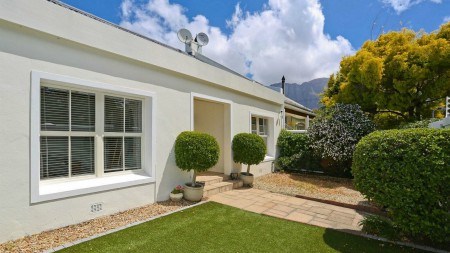The Gauteng market has shown signs of renewed energy since the start of the year, underpinned by positive national sentiment due to changes in political leadership.
South African investor sentiment hit an all-time post-democracy low at the end of last year under pervasive political and economic turmoil that had beset South Africa under the previous administration.
But instead of limping into 2018 as anticipated, a dramatic turn of events at the 11th hour precipitated an unexpectedly positive start to the new year, with agents in many areas reporting renewed market activity and encouraging investor interest.
According to Lew Geffen, Chairman of Lew Geffen Sotheby’s International Realty, this was especially evident in Johannesburg, the national economic barometer of the country, where the market took a major knock last year.
“February was an excellent month with many of our offices across the city reporting normal trading which is an encouraging indication that there is light at the end of the tunnel after a severe 18-month recession, albeit largely sentiment driven for now.
“The economy is still suffering from a Zuma hangover that won’t disappear overnight or without a lot of hard work, but we have already seen many positive changes in the short time since Cyril Ramaphosa was elected and if he maintains his track record, we should see significant improvement before year-end.”
There is likely to be continued consumer caution as South Africans weigh up the immediate impact of the incoming VAT and fuel levy hikes, but Geffen believes the impact of these increases on the industry will be countered by the fact that many investors who have been holding back will start to feel renewed confidence and will re-enter the market.
“Financial caution is clearly evidenced by sellers’ predominant reasons for putting a primary residence up for sale. During more prosperous economic times, one of the main reasons people sell is to upgrade to a better home or neighbourhood but in a subdued economy, sales due to financial stress become more common with some sellers also optingto rent rather than buy.”
FNB’s February Property Barometer noted that only 11% of all home sellers across country had put their properties on the market during the third and fourth quarter of 2017 with the express purpose of upgrading to a better residence which was 45% lower than the multi-year high of 20% in the final quarter of 2013.
“There’s no doubt the property market will strengthen fairly swiftly in line with a far more positive general national sentiment,” says Geffen, “and the increased activitywill in turn stimulate a price recovery across the country, with steady and stable growth being the hallmark of the year.” He adds that not all markets will recover equally, especially those which saw unprecedented growth in recent years.
“Cape Town cannot expect to see as much growth in the near future after four years of consistent double-digit growth way above national average which priced many areas to the point of unaffordability. “However, demand is still strong and, as prices continue to stabilise, the market will pick up and sales volumes will increase, especially in the entry and mid-market sectors.”
Geffen concludes: “While it is early days yet, and many people are understandably concerned about issues like land appropriation without compensation, I believe that sanity will prevail and that ultimately the future of the country will be considered above all else.
mping out corruption are a huge step in the right direction and although we still have a considerable way to go, the current situation can aptly be described by the golfing adage, the son-in-law shot – it’s not quite what you expected, but you’ll take it.




